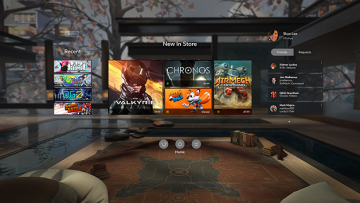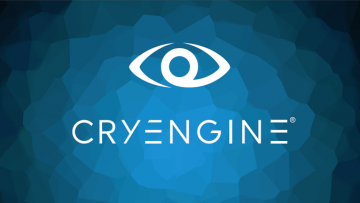
VR vs. Simply Irr-statistical
It’s Tuesday which must mean it is time to burden your eyeballs with another VR Vs. With Microsoft and Sony – or rather Sony Interactive Entertainment – both allegedly prepping new consoles which could have an affect on the current virtual reality (VR) ecosystem, the Daydream still more a technically design on paper and yet more head-mounted displays (HMDs) on the way. Yes, more. Somehow… The clock to this year’s Electronic Entertainment Expo (E3) continues to tick down, bringing with it a mixture of excitement, curiosity and a desire to stock up on energy drinks. Before we get to the big day and to a series of reveals no doubt, we have a couple of weeks to talk about other things and today’s topic is a bit of a quick one.
The problem with statistics is that you can make them, if you want, say anything. Depending upon what you ask and how you ask it, not to mention your judging criteria you can obviously get a different result. This was aptly demonstrated in 1980’s BBC comedy series Yes, Prime Minister in a section about leading questions. Where the character of Sir Humphrey Appleby explains how he could get completely contrasting opinions on a subject just by changing the way initial questions are asked. The sketch is below.
So what does biting 80’s British political satire have to do with virtual reality (VR)? Simply that statistics don’t always say what they should say, that they can effectively be worthless, tell you nothing or tell you the blindingly obvious. Market predictions are exactly the same. The problem is you see, we and our fellow enthusiast sites are somewhat obliged to report these findings on both VR and augmented reality (AR) . After all, for the most part they are our only guide as to how the market as a whole is/will progress. Which is a pity as every prediction from industry insiders, market analysts and so forth seems to lurch from one end of the spectrum to the other. While in other areas you’d be forgiven for being a little confused how they considered others findings a huge revelation.
So let’s start with industry growth. Did you know for instance that according to Institution A’s research by 2020 VR and AR combined will be worth $9.5 Billion (USD)? Impressive stuff. Unfortunately Organisation B the month before that would like to inform you that VR alone will actually be worth $15.9 Billion. Crikey, can someone please tell me what happened in that 30 days? You know, that made the initial prediction lose the GDP of a small country? Don’t worry though, because it’ll gain it back again according to Findings C a couple of months later, with the market worth $15.9 Billion a year for hardware and not just that but would also include another $24.5 Billion for software. Confused yet? What if I told you Report D would really make you scratch your head, informing you as it does that the AR market – yes the AR market on its own – will be worth a whopping $100 Billion by 2024?
Then there’s the more obvious side. I saw multiple ones last year and this assert with confidence that more VR hardware would be sold this year than in 2015. In 2015 the Gear VR came out in November, this year has seen the commercial release of Oculus Rift, HTC Vive and will also see the PlayStation VR release this year. You… don’t say, oh great and powerful oracles(!) It’s a bit like saying the demand for umbrellas went up during a storm. We know this. It’s obvious. So stop. Please just stop. Just admit when you’re saying common sense logic and that when it comes to those kinds of specifics you don’t actually know and that, sticking with my BBC comedy theme here, as a matter of fact…
https://www.youtube.com/watch?v=EFRpFkZFrOU
Information is great, researchers. But if you could possibly spend a little more time revealing facts: trends in the current market, breakdowns of recent sales figures, etc. as opposed to ‘new technology is new and people are buying it now they can actually buy it’ you’ll be helping the industry and those interested in it immensely.
More importantly statistics tell me that more people will read your findings after you write them than before you did.
This article was originally written by the author for VRFocus.

![[ID: xjSZ-m_6fPI] Youtube Automatic](https://lastminutecontinue.com/wp-content/uploads/id-xjsz-m6fpi-youtube-automatic-60x60.jpg)




